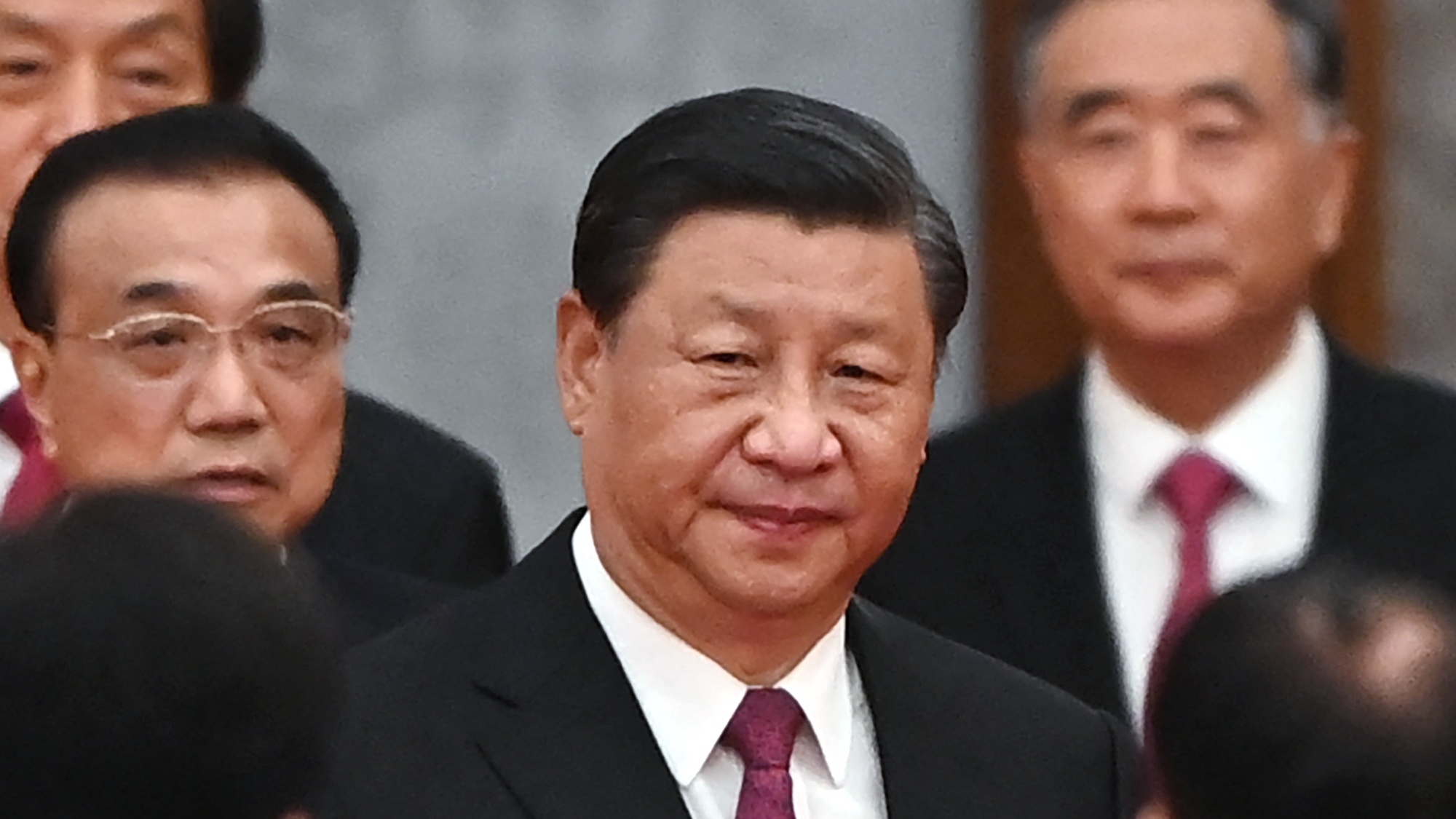Chinese journalists forced into 90 hours of lessons to ‘learn the party line’
State-accredited reporters to undergo training aimed at stamping out dissent

A free daily email with the biggest news stories of the day – and the best features from TheWeek.com
You are now subscribed
Your newsletter sign-up was successful
China has announced plans to strong-arm around 200,000 journalists into having at least 90 hours of lessons to ensure that they are “professionally excellent” and loyal to the ruling Chinese Communist Party (CCP).
The plan to have journalists “learn the party line” was announced in a draft document from the National Press and Publication Administration and comes amid heightened efforts by President Xi Jinping to “tighten control over journalists”, The Times said.
“Independent journalism has no place in China,” the paper added, meaning that “only journalists accredited by the state and hired by state media are allowed to gather news”. Reporters seeking to renew their press cards in 2019 had to first “pass a test on Xi’s thoughts, including his directive on propaganda work”.
The Week
Escape your echo chamber. Get the facts behind the news, plus analysis from multiple perspectives.

Sign up for The Week's Free Newsletters
From our morning news briefing to a weekly Good News Newsletter, get the best of The Week delivered directly to your inbox.
From our morning news briefing to a weekly Good News Newsletter, get the best of The Week delivered directly to your inbox.
“Guided by the party’s mission on news and public opinion work, we must deepen the Marxist news education,” the draft document said.
“Throughout continued education we must carry out the work to construct the journalists’ political abilities and guide the news professionals to always take the correct political direction, have the right public opinion orientation and value orientation.”
The courses will also focus on “raising political awareness and enhancing political competence”, it added.
Forbes has described China as “one of the riskiest, most oppressive places for a journalist to exist and to try and function professionally” after Reporters Without Borders (RWB) placed it ahead of just Turkmenistan, North Korea and Eritrea at the bottom of its 2021 World Press Freedom Index.
A free daily email with the biggest news stories of the day – and the best features from TheWeek.com
“China’s state and privately-owned media are under the Communist Party’s ever-tighter control, while the administration creates more and more obstacles for foreign reporters,” the index said. Beijing is also “trying to export its oppressive model by promoting a ‘new world media order’ under China’s influence”.
Persecution of journalists may also “have contributed to the global coronavirus outbreak by stopping whistleblowers coming forward in the early days of the pandemic”, RWB told The Guardian following the release of the global rankings.
“We’ve argued and still argue that if the press had been freer in China then it’s possible a global pandemic could have been averted,” Rebecca Vincent, director of international campaigns at the organisation, told the paper.
-
 Why is the Trump administration talking about ‘Western civilization’?
Why is the Trump administration talking about ‘Western civilization’?Talking Points Rubio says Europe, US bonded by religion and ancestry
-
 Quentin Deranque: a student’s death energizes the French far right
Quentin Deranque: a student’s death energizes the French far rightIN THE SPOTLIGHT Reactions to the violent killing of an ultraconservative activist offer a glimpse at the culture wars roiling France ahead of next year’s elections
-
 Secured vs. unsecured loans: how do they differ and which is better?
Secured vs. unsecured loans: how do they differ and which is better?the explainer They are distinguished by the level of risk and the inclusion of collateral
-
 The fall of the generals: China’s military purge
The fall of the generals: China’s military purgeIn the Spotlight Xi Jinping’s extraordinary removal of senior general proves that no-one is safe from anti-corruption drive that has investigated millions
-
 Epstein files topple law CEO, roil UK government
Epstein files topple law CEO, roil UK governmentSpeed Read Peter Mandelson, Britain’s former ambassador to the US, is caught up in the scandal
-
 Iran and US prepare to meet after skirmishes
Iran and US prepare to meet after skirmishesSpeed Read The incident comes amid heightened tensions in the Middle East
-
 Israel retrieves final hostage’s body from Gaza
Israel retrieves final hostage’s body from GazaSpeed Read The 24-year-old police officer was killed during the initial Hamas attack
-
 China’s Xi targets top general in growing purge
China’s Xi targets top general in growing purgeSpeed Read Zhang Youxia is being investigated over ‘grave violations’ of the law
-
 Panama and Canada are negotiating over a crucial copper mine
Panama and Canada are negotiating over a crucial copper mineIn the Spotlight Panama is set to make a final decision on the mine this summer
-
 Why Greenland’s natural resources are nearly impossible to mine
Why Greenland’s natural resources are nearly impossible to mineThe Explainer The country’s natural landscape makes the task extremely difficult
-
 Iran cuts internet as protests escalate
Iran cuts internet as protests escalateSpeed Reada Government buildings across the country have been set on fire